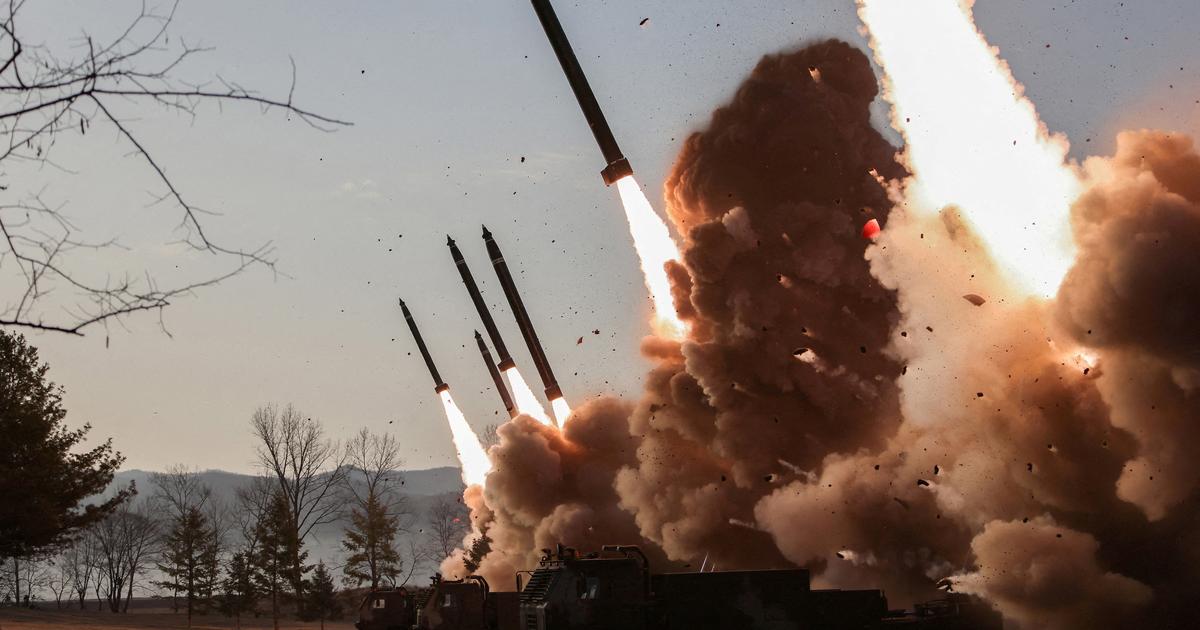- Click to share on Facebook (Opens in a new window)
- Click to share on Twitter (Opens in a new window)
- Click here to share on LinkedIn (Opens in a new window)
- Click to email a friend (Opens in a new window)
(CNN) - North Korea plans to adopt a hardline policy toward the United States that involves removing denuclearization from the table amid the perceptions that President Donald Trump is politically vulnerable, a source familiar with the mentality told CNN Current North Korean leadership.
The source said that this new policy is probably the so-called "Christmas gift" presented by a senior North Korean official earlier this month. It is expected to include the abandonment of negotiations with Washington and the consolidation of Pyongyang's status as a nuclear weapons State.
North Korea will no longer seek relief from sanctions as a means to achieve economic development in the short or long term, but will increase its commitment to the state's self-sufficiency ideology, known as Juche.
- North Korea says it would send "Christmas gift" to the US
The North Korean leader, Kim Jong Un, announced in 2018 that North Korea had “completed” its quest to develop nuclear weapons and promised to fully focus the country's efforts on economic development and improve the lives of its people.
It is not clear how Trump and his administration would respond to such a decision. After Trump took office in 2017, he and Kim met verbally when North Korea fired an increasingly advanced group of ballistic missiles, the type designed to launch nuclear warheads.
Then followed a wave of diplomacy that included three meetings in person between Trump and Kim, but negotiations have not progressed much. As the clock approaches the end-of-year deadline imposed for North Korean talks, the rhetoric on each side has acquired part of the 2017 poison.
The source said Kim is expected to "wait and see" the approach. This is based on the perception that Trump is politically vulnerable due to his political judgment and the impending 2020 presidential elections.
North Korea says it conducted a 'significant' missile site test
Analysts believe Pyongyang is worried that if he reaches an agreement with Trump and loses in November, his successor may not comply with the agreement. North Korea and the United States have reached previous agreements that did not survive the successive administrations, and more recently Kim's diplomats have quickly cited the Trump administration's decision to abandon a nuclear agreement with Iran as a reason he cannot trust. in which the United States commits itself to a long-term agreement.
If Trump wins a second term, North Koreans may be more willing to re-participate in the talks, the source said. But the bar has definitely been raised to return to talks with Washington.
Denuclearization, the source said, seems to be off the table for now.
The chances of a missile test is "very low"
Experts and analysts have speculated that the "Christmas gift" warning could presage some kind of advanced missile launching or satellite testing, actions that would probably require a response from the United States and other global powers.
Recent commercial satellite photographs appear to show activity at the North Korean Sohae satellite launch facility and at another site linked to the production of intercontinental ballistic missiles (ICBM).
However, the chances of North Korea actually conducting a provocative test such as a satellite launch, firing an ICBM or detonating a nuclear weapon, are "very low" because those acts would be considered too provocative for parties like China and Russia, two major international business partners of Pyongyang, the source said.
Both nations have historical ties with North Korea. It is believed that China, in particular, accounts for almost 90% of North Korea's imports, a vital element for Pyongyang.
The backdoor supply lines of China and Russia are beginning to reopen, the source said, and North Koreans are aware that part of their most important economic partners consider a launch as too extreme.
Analysts say that while China and Russia want North Korea to renounce its nuclear weapons and ballistic missiles, its number one priority is stability on the Korean peninsula.
Moscow and Beijing have been in the past willing to punish North Korea for the development of its nuclear weapons program. Both countries approved the punitive international sanctions imposed on Pyongyang in 2017, in response to their various nuclear and missile tests.
The source said the recent engine tests at the Sohae site helped North Korean scientists "gain valuable knowledge," but did not cross a red line that would damage relations with China and Russia.
North Korea has conducted a series of short-range missile and rocket tests in recent months, a violation of UN Security Council resolutions, but not the agreement reached between Trump and Kim. The North Korean leader only pledged to stop testing long-range missiles and nuclear weapons.
If Kim violates his promise to Trump, that would probably require a response from the United States.
"My relationship with Kim Jong Un is really good, but that does not mean that it does not comply with the agreement we signed," Trump said on the sidelines of a NATO meeting earlier this month.
"I hope it lives up to the agreement, but we will find out," Trump added.
Kim Jong Un









